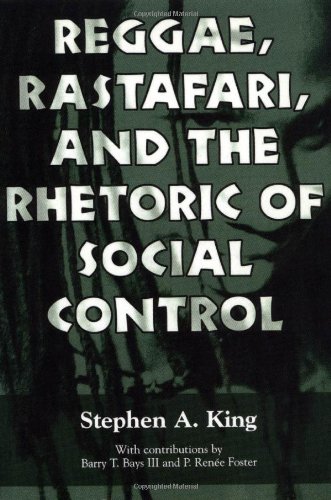
Inhaltsangabe
Who changed Bob Marley's famous peace-and-love anthem into "Come to Jamaica and feel all right"?
When did the Rastafarian fighting white colonial power become the smiling Rastaman spreading beach towels for American tourists?
Drawing on research in social movement theory and protest music, Reggae, Rastafari, and the Rhetoric of Social Control traces the history and rise of reggae and the story of how an island nation commandeered the music to fashion an image and entice tourists.
Visitors to Jamaica are often unaware that reggae was a revolutionary music rooted in the suffering of Jamaica's poor. Rastafarians were once a target of police harassment and public condemnation. Now the music is a marketing tool, and the Rastafarians are no longer a "violent counterculture" but an important symbol of Jamaica's new cultural heritage.
This book attempts to explain how the Jamaican establishment's strategies of social control influenced the evolutionary direction of both the music and the Rastafarian movement.
From 1959 to 1971, Jamaica's popular music became identified with the Rastafarians, a social movement that gave voice to the country's poor black communities. In response to this challenge, the Jamaican government banned politically controversial reggae songs from the airwaves and jailed or deported Rastafarian leaders.
Yet when reggae became internationally popular in the 1970s, divisions among Rastafarians grew wider, spawning a number of pseudo-Rastafarians who embraced only the external symbolism of this worldwide religion. Exploiting this opportunity, Jamaica's new Prime Minister, Michael Manley, brought Rastafarian political imagery and themes into the mainstream. Eventually, reggae and Rastafari evolved into Jamaica's chief cultural commodities and tourist attractions.
Stephen A. King is associate professor of speech communication at Delta State University. His work has been published in the Howard Journal of Communications, Popular Music and Society, and The Journal of Popular Culture.
Die Inhaltsangabe kann sich auf eine andere Ausgabe dieses Titels beziehen.
Aus dem Klappentext
How Jamaica fashioned a tourist beacon from reggae music and the Rastafarian revolution
„Über diesen Titel“ kann sich auf eine andere Ausgabe dieses Titels beziehen.
Weitere beliebte Ausgaben desselben Titels
Suchergebnisse für Reggae, Rastafari, and the Rhetoric of Social Control
Reggae, Rastafari, and the Rhetoric of Social Control
Anbieter: Better World Books, Mishawaka, IN, USA
Zustand: Good. Former library book; may include library markings. Used book that is in clean, average condition without any missing pages. Bestandsnummer des Verkäufers 3957473-75
Gebraucht kaufen
Versand innerhalb von USA
Anzahl: 1 verfügbar
Reggae, Rastafari, and the Rhetoric of Social Control
Anbieter: LiLi - La Liberté des Livres, CANEJAN, Frankreich
Zustand: fine. vendeur professionnel, envoi soigné sous 24/48h. Bestandsnummer des Verkäufers 86F6571A1F3C
Gebraucht kaufen
Versand von Frankreich nach USA
Anzahl: 1 verfügbar
Reggae, Rastafari, and the Rhetoric of Social Control
Anbieter: The Book Spot, Sioux Falls, MN, USA
Hardcover. Zustand: New. Bestandsnummer des Verkäufers Abebooks364550

